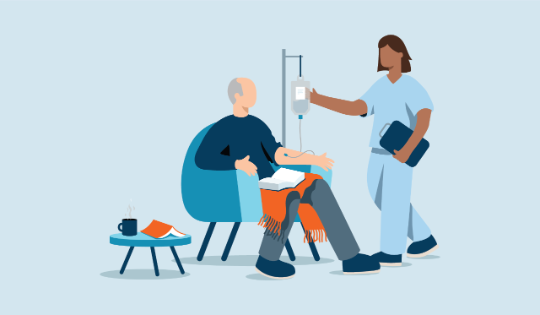Tracking potential side effects
When taking OPDIVO or an OPDIVO-based combination, it’s important to play an active role in talking with your healthcare team, as many signs and symptoms of side effects can only be noticed by you.
Make sure to pay attention to how you are feeling and be especially aware of any new discomfort that appears unexpectedly or any condition that suddenly gets worse.
If you notice a change in the way you are feeling—even if it seems small or irrelevant—contact your healthcare team immediately, and don’t try to treat possible side effects yourself.






